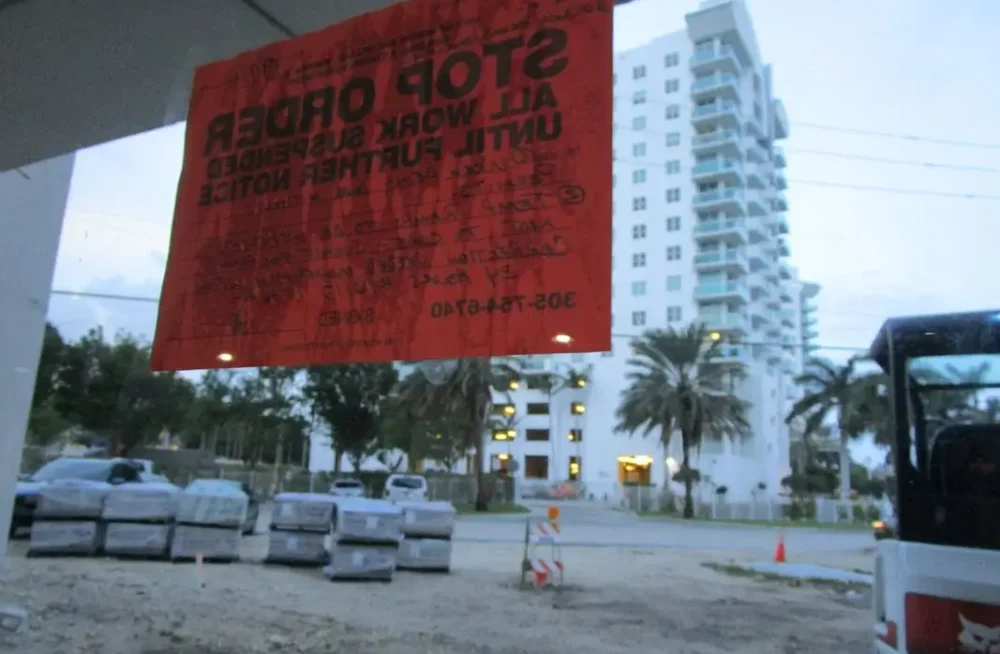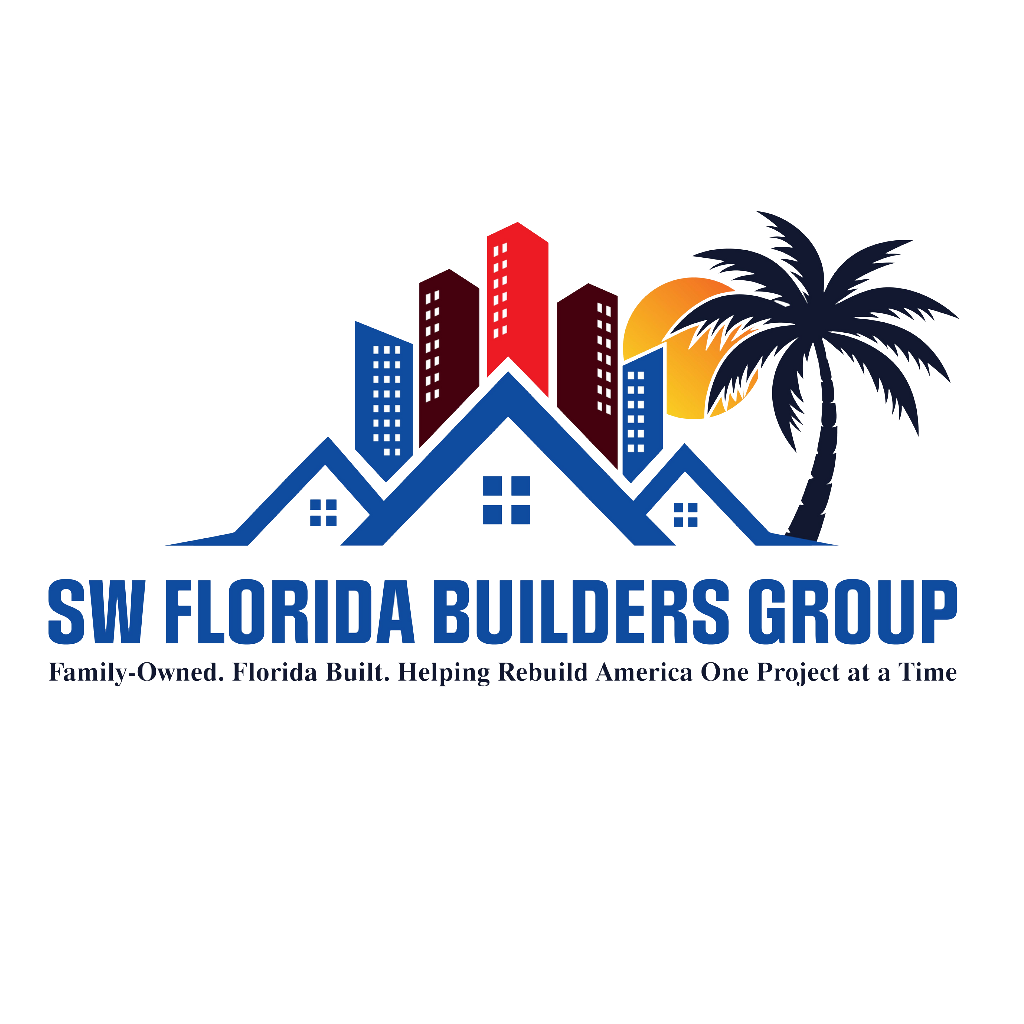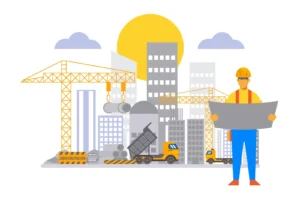
Table of Contents
The construction industry thrives on meticulous planning and adherence to regulations. Obtaining proper building permits ensures safety, code compliance, and project integrity. However, neglecting these crucial aspects on your construction site can lead to a dreaded obstacle: a Stop Work Order (SWO). Here in Florida, this legal mandate forces immediate cessation of construction activities, potentially jeopardizing timelines, budgets, and even the future of a project.
Let’s dig into Stop Work Orders (SWOs) to understand how they work, what consequences they carry, and how to keep your construction project running smoothly. In this exploration, we’ll break down the mechanics of SWOs, highlight their impacts, and discuss practical ways to ensure a hassle-free construction journey.
What are Stop Work Orders?
Imagine a red flag hoisted high amidst the bustling construction site of yours. That’s essentially what a Stop Work Order (SWO) represents. Issued by authorized entities, it’s a legally binding document demanding the immediate stoppage of all construction activities on a specific project. This directive serves as a crucial safeguard against potential dangers or non-compliance with building permits and regulations.
SWOs in Florida: Unpacking the Nuances
Florida takes construction safety and code adherence seriously. Its Stop Work Order regulations, outlined in Chapter 440 of the Florida Statutes, empower various authorities to enforce compliance. These include:
- Florida Department of Financial Services (DFS): Primarily responsible for issuing SWOs when issues involve workers’ compensation coverage or safety violations.
- Local Building Departments: Focus on enforcing building code violations and permit discrepancies.
- Fire Marshals: May intervene if fire safety concerns arise during construction.
- The type of SWO issued also depends on the severity of the violation. Two types exist:
- Partial Stop Work Order: Applies to specific areas or activities within the project deemed unsafe or non-compliant, allowing other work to continue.
- Full Stop Work Order: Requires complete cessation of all construction activities until the issue is resolved.
Reasons for Receiving a Stop Work Orders in Florida: A Red Alert List
Receiving a Stop Work Order in the midst of a construction project can be a major headache. Understanding the potential violations that might lead to an SWO in Florida is crucial for making sense and understanding in the situation. Here are some key culprits that could be responsible:
- Failing to secure valid building permits: Building without proper permits is a recipe for disaster and an immediate SWO.
- Workers’ compensation non-compliance: Lack of mandatory workers’ compensation insurance puts workers at risk and invites an SWO.
- Safety hazards and building code violations: Exposed electrical wires, faulty scaffolding, or non-approved materials can trigger an SWO.
- Improper waste disposal: Ignoring environmental regulations and proper waste management can bring consequences, including an SWO.
- Complaints and concerns from neighbors or the public: Valid concerns about noise, dust, or safety hazards raised by the community can lead to an investigation and potential SWO.
Facing the Red Flag: What to Do When You Receive an SWO
Receiving an SWO is stressful, but panic might not help you solve the problem. Here’s a strategic guide on how to effectively navigate the scenario, particularly when grappling with non-compliance issues related to building permits:
- Acknowledge and comply: Don’t ignore the order – immediate cessation of work is mandatory. Continuing construction work under an SWO is a punishable offense.
- Identify the violation: Understand the reason behind the SWO and communicate with the issuing authority for specific details of violation.
- Develop a plan of action: Work with professionals like engineers, contractors, and legal counsel to address the violation and develop a corrective action plan.
- Submit the plan for approval: Present your plan to the issuing authority for review and approval. The timeline for lifting the SWO depends on the severity of the violation and the time needed to rectify it.
- Maintain open communication: Keep communication lines open with the issuing authority throughout the process. Regularly update them on your progress and be receptive to any additional measures they may request, ensuring transparency, particularly in matters related to building permit compliance.
Steering Clear of Red Flags: How to Avoid Receiving an SWO
Prevention is indeed preferable to dealing with the aftermath. Consider these comprehensive tips to proactively avoid the issuance of Stop Work Orders (SWOs):
- Obtain and Follow Building Permits: A crucial first step is to engage with relevant building departments before initiating construction. Consult with them to identify and secure all necessary building permits, ensuring compliance with local regulations and codes. Promptly initiating the permit application process sets the foundation for a smooth and lawful construction journey.
- Ensure Workers’ Compensation Compliance: Prioritize the well-being of construction workers by confirming proper coverage for workers’ compensation in case of injuries. Complying with workers’ compensation regulations not only demonstrates ethical responsibility but also minimizes the risk of legal issues that could lead to SWOs.
- Prioritize Safety First: Implement stringent safety protocols on the construction site. Conduct regular safety inspections, provide ongoing training for personnel, and ensure that only qualified and trained individuals handle various aspects of the project. A commitment to safety significantly reduces the likelihood of safety-related violations triggering SWOs.
- Manage Waste Responsibly: Adhere to proper waste disposal guidelines to sidestep environmental concerns that might prompt SWOs. Responsible waste management not only protects the environment but also mitigates the risk of regulatory violations, maintaining a smooth construction process.
- Maintain Open Communication: Foster positive relationships with neighbors and the public by addressing any concerns promptly and proactively. Keeping communication lines open can prevent misunderstandings that may lead to complaints and, ultimately, SWOs. Collaboration with the community is key to a harmonious construction process.
- Thorough Building Permit Compliance: In the realm of building permits, thorough compliance is paramount. This involves not only obtaining the necessary permits but also meticulously following the specifications outlined within them. Regularly consult with building departments to ensure ongoing compliance throughout the construction phases, preventing potential issues that might trigger SWO.
Frequently Asked Questions

How long does a Stop Work Order last?
The duration of a Stop Work Order (SWO) varies based on the nature and severity of the violation that prompted its issuance. In Florida, the issuing authority evaluates each case individually, considering factors such as the complexity of the violation, the potential risks involved, and the proposed corrective actions outlined in the submitted plan. With this, stop work orders can be lifted within days, while others may take weeks or even months.
Can I contest a Stop Work Order?
Yes, you have the right to contest an SWO through an administrative hearing within 21 days of receiving it. Seek legal counsel for guidance on the process. An experienced construction attorney can help you understand the grounds for contesting the SWO, gather evidence, prepare your case, and represent you at the hearing.
What is a Stop Work Order (SWO) in the context of construction projects?
A Stop Work Order is a legally binding directive issued by authorized entities, requiring an immediate halt to all construction activities on a specific project. It serves as a crucial safeguard against potential dangers or non-compliance with building permits and regulations.
What are some common violations that may trigger a Stop Work Order in Florida?
Common violations include failing to secure valid building permits, non-compliance with workers’ compensation regulations, safety hazards and building code violations, improper waste disposal, and complaints from neighbors or the public about noise, dust, or safety concerns.
How should one respond if they receive a Stop Work Order, particularly concerning building permit issues?
If you receive a Stop Work Order, immediate compliance is mandatory. Understand the specific violation by communicating with the issuing authority, work with professionals to develop a corrective action plan, submit the plan for approval, and maintain open communication throughout the process. It is crucial to address building permit issues promptly to lift the SWO and resume construction.
Conclusion
Stop Work Orders (SWOs) can be unwelcome roadblocks in any Florida construction project. However, understanding their purpose, potential triggers, and proper response strategies can equip you to navigate these challenges effectively. By prioritizing safety, adhering to regulations, and fostering open communication, you can minimize the risk of SWOs and keep your project on track.
Avoid project disruptions and costly delays caused by stop work orders. Gain the knowledge to effectively navigate these situations and ensure your projects continue without hindrance. Explore more construction advice and meet your project needs by clicking here!




